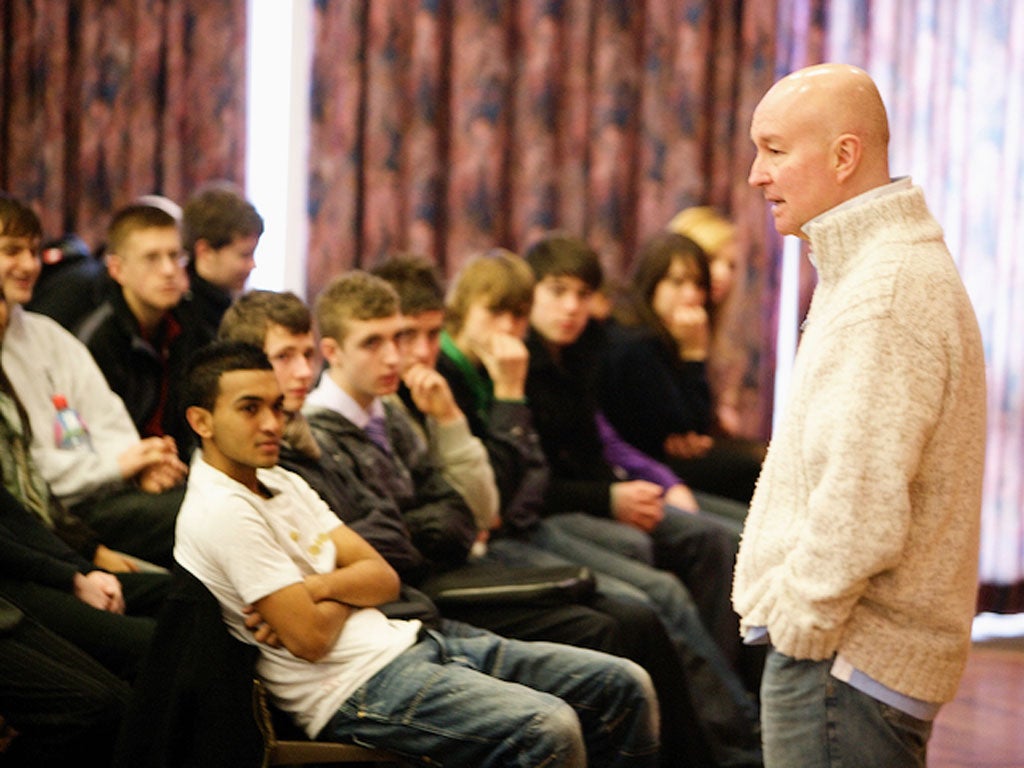Delayed Diagnosis: Why GPs need to start taking young patients seriously
From a doctor's point of view, teenage patients can be a challenge, but that doesn't mean their symptoms are any less important.

Your support helps us to tell the story
From reproductive rights to climate change to Big Tech, The Independent is on the ground when the story is developing. Whether it's investigating the financials of Elon Musk's pro-Trump PAC or producing our latest documentary, 'The A Word', which shines a light on the American women fighting for reproductive rights, we know how important it is to parse out the facts from the messaging.
At such a critical moment in US history, we need reporters on the ground. Your donation allows us to keep sending journalists to speak to both sides of the story.
The Independent is trusted by Americans across the entire political spectrum. And unlike many other quality news outlets, we choose not to lock Americans out of our reporting and analysis with paywalls. We believe quality journalism should be available to everyone, paid for by those who can afford it.
Your support makes all the difference.Sign your school up today.
There's never a good time to have cancer but for teenagers it seems particularly cruel timing. Just as they are discovering who they are, life is put on hold. They have to cope with not only the distress of learning they have a potentially life-threatening disease, but other issues like social isolation, physical changes such as hair loss, extreme weight gain or loss, as well as the late effects of treatment that may include infertility or cardiac problems.
From a doctor’s point of view, teenage patients can be a challenge, because they have raging hormones and fast growing bodies. They naturally experience aches and pains as they grow, and sports and accidental injuries are quite common. They can also seem quite grumpy and sometimes are hard to talk to and understand. However, despite this, they don’t appear in doctor’s surgeries that often. Generally speaking, teenagers are either too busy, too scared or simply can’t be bothered to go to the doctors. For this reason, when they do appear, either with their parents or alone, GPs need to take notice.
Recent research from Teenage Cancer Trust’s patient-named conference, "Find your Sense of Tumour" found a quarter (24%) of teenage cancer patients visited their GP at least four times before they were referred to a specialist. The research also found two thirds (61%) of young people with cancer visited GPs with at least one of the most common cancer symptoms, yet for a third (28%) no action was taken.
Six young people are diagnosed with cancer every day in the UK, that’s around 2,500 a year. This is considered rare, and accounts for less than 1% of all cancers diagnosed annually across all age groups. The average GP might only ever see one young person with cancer throughout their career, so it is clear why symptoms can be missed. Nevertheless, GPs should be vigilant with teenage patients and consider an automatic ‘three strikes’ approach, where young patients are referred for further investigation if no reasonable explanation is reached after three visits.
Whilst vigilance and speedy referral by GPs is vital, there are also other things that can be done to help the diagnosis process for young people with cancer. We must raise awareness of the signs and symptoms of cancer in young people and increase their confidence in visiting GPs. And that’s what Teenage Cancer Awareness Week aims to do.
Teenage Cancer Trust has been giving free cancer awareness sessions in schools for over 20 years, educating young people about the signs of cancer, as well as giving tips on healthy living. During Teenage Cancer Awareness Week, we are encouraging all teachers at secondary schools to get involved too and speak to young people about cancer. There are resources on the Teenage Cancer Trust website to help them do this. HERE and you can also recommend a visit to your school here.
Independent researchers at Stirling University evaluated Teenage Cancer Trust’s school awareness sessions and found that six months after a talk, young people are significantly more likely to name the main signs of cancer, with the greatest recall being for unexplained pain (41%), followed by extreme tiredness (28%). Emotional barriers to seeking help were also reduced, particularly in relation to confidence in speaking up. This shows that speaking to young people about cancer can make a huge impact.
Young people can get some of the rarest and most aggressive forms of cancer and their survival rates are poorer than for both children and adults. We need to improve the speed of diagnosis so young people have the best options for treatment and chances of survival. For some, this will be the difference between life and death. For all, it will mean swift access to specialists, treatment and the support needed to get their lives back on track.
Please refer your local secondary school to Teenage Cancer Trust today.
This is one of a series of articles in association with Teenage Cancer Awareness Week, which runs from 1 to 7 October. For further information visit www.teenagecancertrust.org
Professor John Radford is Teenage Cancer Trust Professor of Teenage and Young Adult Cancer Medicine, based at The University of Manchester and the Christie NHS Foundation Trust.
Join our commenting forum
Join thought-provoking conversations, follow other Independent readers and see their replies
Comments